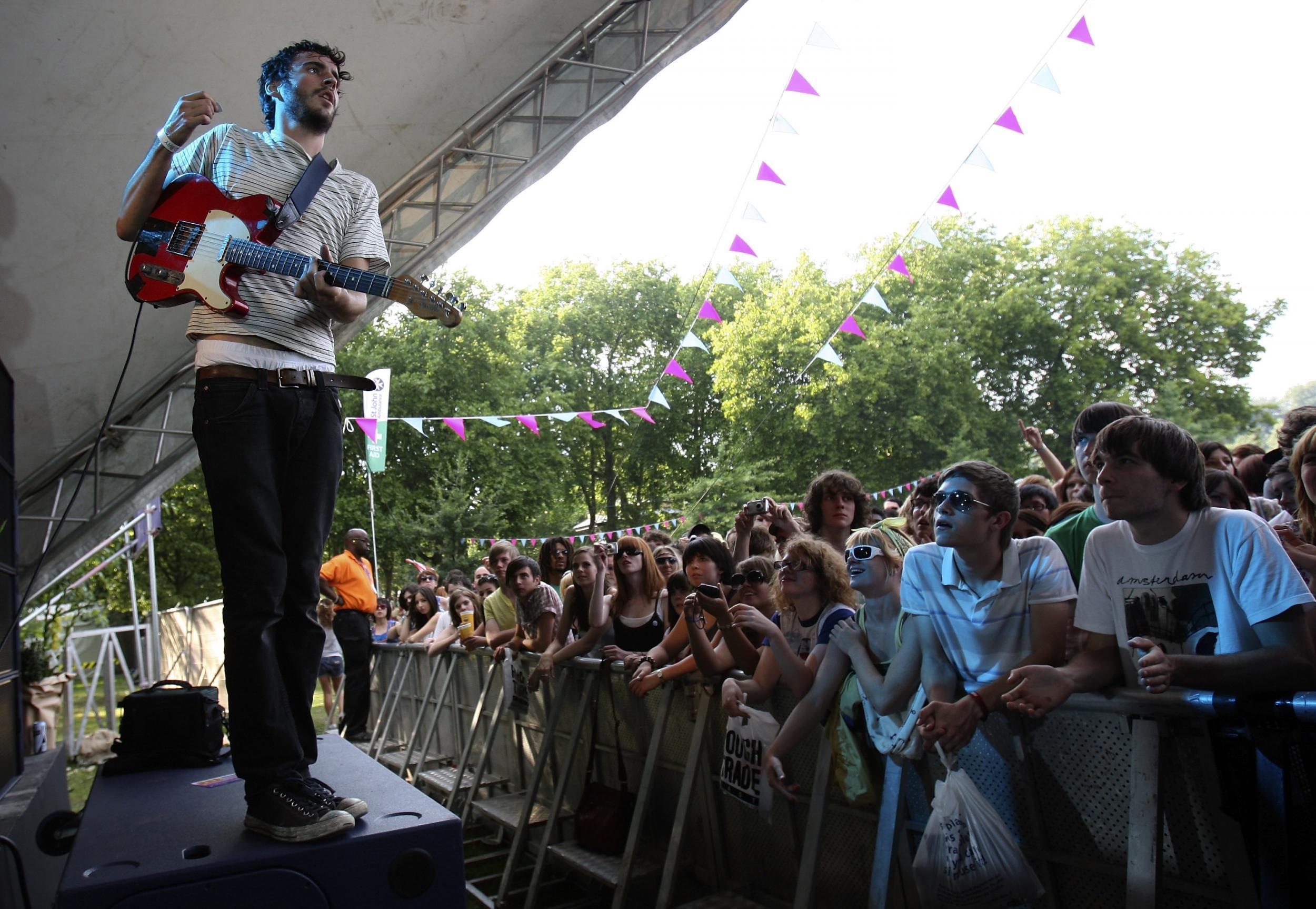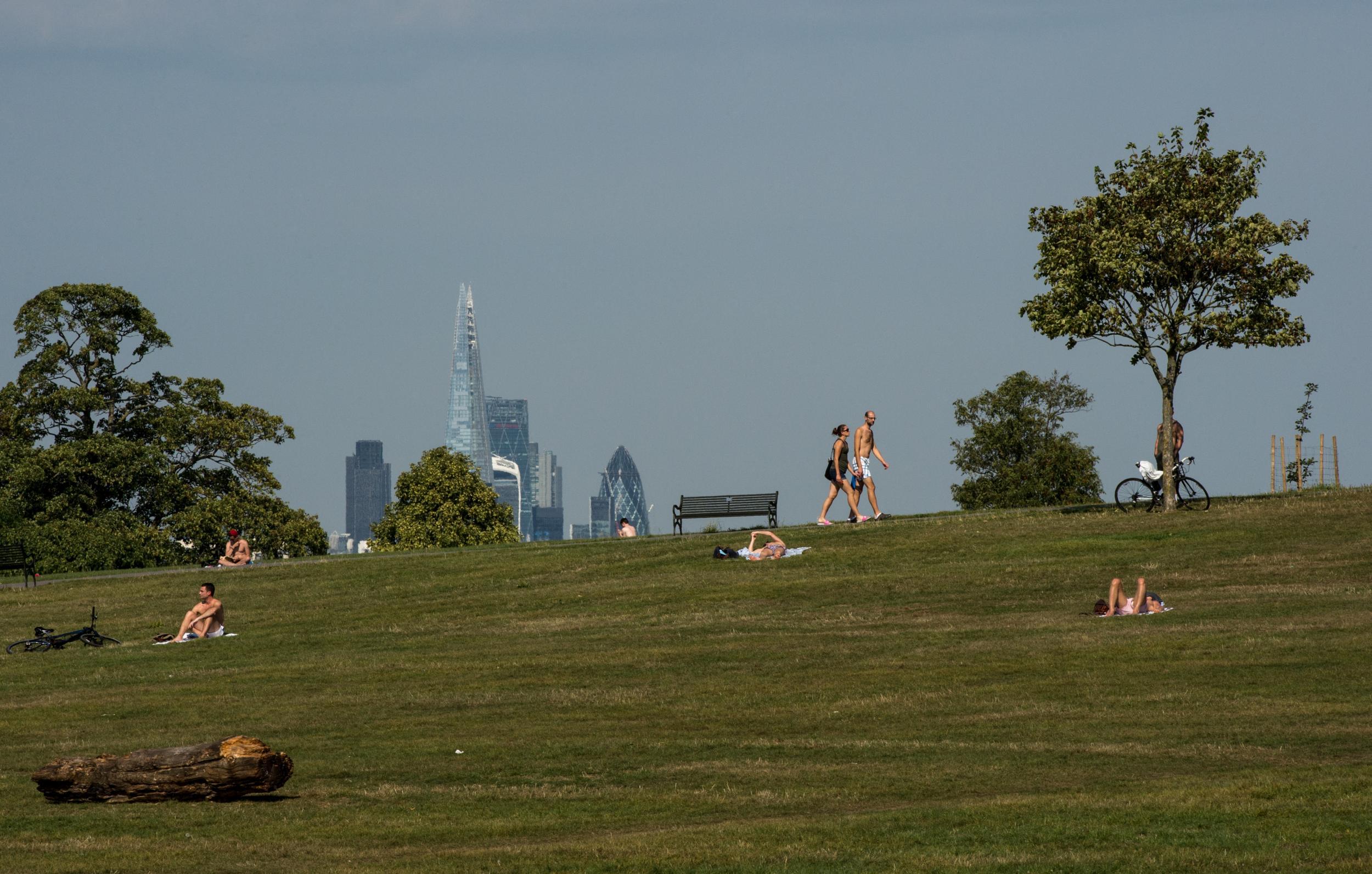Can Field Day survive a move to south London?
Its new home Brockwell Park, like many central London venues, is not exactly hospitable to electronic music

Can Field Day, the music festival previously held in Victoria Park in East London and summer staple of the capital, survive a move to Brockwell Park in south London, a park that killed one festival last year and whose local residents are fighting tooth and nail to reject?
International events company AEG won the exclusive rights to music events in Victoria Park for five years from this summer in an open tender, forcing both Field Day and Lovebox, the two-day June and July festivals, both to seek new homes.
To many, summer in London entails one or both of these two events, with Field Day in its 12th year and Lovebox in its 17th. Both festivals looked to move to Brockwell Park as their new venue, the South London space sandwiched by Herne Hill, Brixton and Tulse Hill, despite the fact the park was the graveyard for Sunfall Festival, an electronic music festival in 2016 and 2017 that has since folded.
Field Day, a consistent platform for both eclectic newcomers and big-name artists across a sea of genres, finally secured a licence from Lambeth Council two weeks ago to take place in the park for at least one year. Lovebox moved in January instead to Gunnersbury Park in Ealing for this year’s event, ten miles away from its original Victoria Park home.
AEG will host a new festival, ‘All Points East’ in Victoria Park across the end of May and the beginning of June, with an emphasis on rock and indie bands which sees The Xx and The National headlining.
Field Day and Lovebox’s possible relocation to Brockwell Park elicited fierce opposition of local community groups, and the fight over Field Day’s license is still ongoing, less than six weeks away from the festival.
Lovebox, with a more hip-hop oriented line-up that sees Childish Gambino and Skepta as top billing this year, had been selling tickets in the hope that they would secure a licence from Lambeth Council for operating in the park too. But in December Lambeth Council surprised the company that runs Lovebox, MAMA Festivals, by telling them out of the blue that the festival would not be welcome - thought to be in anticipation of local unrest to two major festivals in the space of two months. Initiating legal proceedings, MAMA continued to negotiate with Lambeth and local residents in the hope to secure a license for the park, but decided to jump before they were pushed, and moved to Ealing a few months ago.

Field Day, held on the first weekend of June, also combines a mix of hip-hop and electronic, with Erykah Badu, Gilles Peterson and Four Tet set to perform. Field Day’s license for Brockwell Park was granted after a five-hour council meeting and five days of deliberation which saw 60 representations against the festival happening, from mostly local residents. The Council’s conditions for granting the license was a reduced capacity of 35,000 attendees on the Saturday (compared to 40,000 at Victoria Park) and a finishing time of half an hour earlier.
Streams of residents objected on grounds of nuisance - of noise, crowd size and behaviour, the environmental impact on the park, and the occupation of space in the park for three weeks of set-up and packing away. Community groups such as ‘Brockwell Tranquility’ passionately raised the presence of large crowds of drunk people, nitrous oxide use and the tendency for urination and defecation from revellers in residents’ gardens as reasons to reject the festival.
Enjoy unlimited access to 100 million ad-free songs and podcasts with Amazon Music
Sign up now for a 30-day free trial. Terms apply.
ADVERTISEMENT. If you sign up to this service we will earn commission. This revenue helps to fund journalism across The Independent.
Enjoy unlimited access to 100 million ad-free songs and podcasts with Amazon Music
Sign up now for a 30-day free trial. Terms apply.
ADVERTISEMENT. If you sign up to this service we will earn commission. This revenue helps to fund journalism across The Independent.
Since the licensing, Brockwell Tranquility forced Lambeth Council to admit the decision was delivered unlawfully, in not setting out the full reasons for the decision nor the evidence behind it, including a lack of environmental impact assessment. The Council will have to deliver the decision again shortly.
In seeking the licence, Field Day representatives argued it was “not a dance music festival”, but an event with a diversely aged crowd, comprised of “sophisticated“ people “who are into their music” – rather than an exclusively 18-25 year old demographic who would be more likely to engage in anti-social behaviour, they argued.
While the same approval is expected thanks to a £300,000 payment the cash-strapped Lambeth Council will receive from Field Day for the license, Brockwell Tranquility raised close to a £4,500 legal fund in under 48 hours to fight the decision on the alleged basis that Lambeth Council have not followed the correct procedure for how public land is used for private events. “People now understand that making money isn’t an excuse to trash the environment,” says Alice Salisbury, one of the leaders of the group. “If you can’t stand up for the wildlife and small businesses in your own back yard what’s the point?”
One key point of contention is noise spill from the stage, although a noise consultant employed by the council testified that a noise level of lower than 95db at the stages was “not an effective form of entertainment”. As a result a lower noise level to placate local residents was not viable. A sound assessment predicts this fades to around 60db to 75db as it reaches the nearest residences around Brockwell Park.
An acoustic consultant brought in by Brockwell Tranquility then asked to play a 75db level of music during the meeting on portable speakers he had with him, to show what the noise level would be to those residents who live nearest the park. His request was denied on account of the meeting being in a small room rather than in a park outside.
Campaigners’ main argument is that Brockwell Park is not sufficiently big for a festival of Field Day’s size. Brockwell Park is surrounded closely on all four sides by a residential streets, whereas Lovebox’s Gunnersbury Park, which is roughly 50% bigger than Brockwell Park, has the North Circular and the M4 on its east and south sides, and so is less likely to be as disruptive to residents, they argue. Victoria Park is 86 hectares compared to Brockwell Park’s 50 hectares.

Brockwell Park is undoubtedly a prime location geographically for a music festival, relatively central and within close distance to South London neighbourhoods popular with middle-class, young people such as Clapham and Brixton. (Cashing in on this proximity through a line-up that offers moneyed Londoners an aura of cultural capital was a suspicion in the case of Sunfall). However, electronic music-heavy line-ups such as Sunfall Festival and the Saturday of Field Day will always be slightly wasted in spaces like Brockwell Park that have strict noise restraints.
Sunfall, run by the Columbo Group (of Dimensions and XOYO), yielded 51 individual complaints from residents to Lambeth Council in 2016, despite many festival punters’ sound experience being underwhelming to say the least.
Testimony from residents in Lambeth Council meetings saw one resident, who said he could hear in his home “constant thumping all day as a result of the non-stop bass emanating from the park”, and said his neighbour who had a young child, had to “evacuate” their home. Even so, electronic music fans were largely disappointed by the sound experience of most tents, taking to online forums to complain in large number.
This did not stop Sunfall boasting before the 2017 event of the peerless sound experience the punters should again expect. Their 2016 promotional strategy had promised “Sub-bass Armageddon!” with the tagline, “Don’t talk to the sound engineer, he is deaf!”; marketing they had to apologise for when seeking the 2017 license.
Their 2017 sell pledged to residents that it would be quiet, but to attendees that it would be immersive and loud, and Sunfall ended up pleasing neither. A dysfunctional queueing system that made many attendees wait up to four hours for a ten-hour event did not help, and the festival has since folded. Field Day have said: “When we move to a new site we of course take learnings from previous events,” but did not cite specific issues they hope to change.
For 11 years Field Day has been a strong platform for emerging artists and a diverse, cutting-edge line-up, though it has had to downsize slightly for this 12th year in its move. In a short film to commemorate its 10-year anniversary, Kieran Hebden (Four Tet) said: “London needs every thing its got right now to be postive about music…[Field Day is] a reminder to everybody that musical events are a huge cultural importance.”
Whether one of London’s biggest music institutions will flourish in a park that has killed one music festival in the last year and has locals that are fighting tooth and nail to reject it, may prove a significant omen in the capital’s fight to remain on the musical cutting-edge.
Join our commenting forum
Join thought-provoking conversations, follow other Independent readers and see their replies
Comments